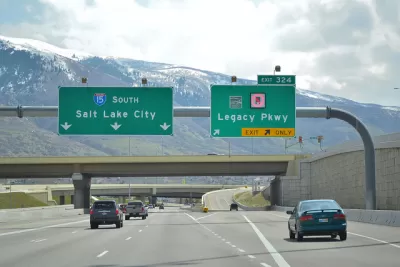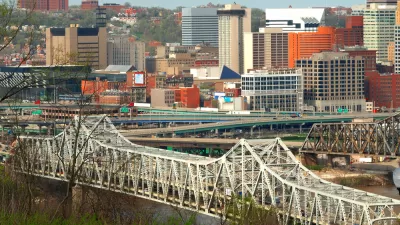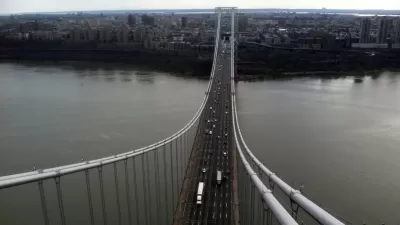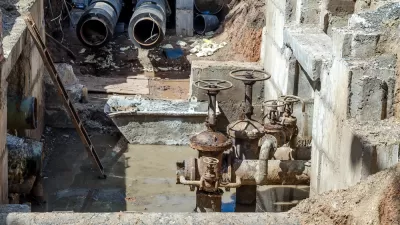Despite alarming claims about the nation's roads and bridges, a column in the Chicago Tribune argues that the administration's proposed infrastructure spending doesn't match actual needs.

Writing in the Chicago Tribune, Steve Chapman argues that the United States doesn't actually need President Biden's "infrastructure binge." Biden "made gaudy promises to 'transform' our transportation networks, 'revolutionize' railroads and urban transit, and upgrade water systems, broadband, bike lanes, home weatherization and just about anything else you could think of," according to Chapman, writing before reports of the Biden administration developing a $3 trillion infrastructure plan broke.
Yet reports from the Reason Foundation and the Milken Institute Review show less-than-alarming numbers when it comes to the country's roads and bridges. The Reason Foundation's Annual Highway Report found that "the percentage of urban interstates rated in poor condition was lower in 2018 than a decade earlier," and, according to Brown University economist Matthew A. Turner, "investment in the interstate, in bridges and in public transit buses has matched or exceeded depreciation over the past generation."
Chapman argues that it should be up to states and localities to fund the infrastructure projects that affect them. "The great majority of infrastructure assets are owned by state and local governments, and it’s their constituents who would gain the most from resurfacing roads or bolstering bridges," he writes. "If they are going to reap the economic benefits of such investments, shouldn’t they be willing to pay for them?"
Others contend that many major infrastructure projects require federal oversight and funding, and that federally funded projects create well-paying, long-term jobs and economic opportunity. An October 2019 report from the House Budget Committee states that "federal support is especially important for larger-scale projects that affect multiple jurisdictions, require a broader source of revenues than is available to local communities, or create or sustain public goods that should be widely available to all."
FULL STORY: We don't need Biden's infrastructure binge

Alabama: Trump Terminates Settlements for Black Communities Harmed By Raw Sewage
Trump deemed the landmark civil rights agreement “illegal DEI and environmental justice policy.”

Planetizen Federal Action Tracker
A weekly monitor of how Trump’s orders and actions are impacting planners and planning in America.

How Atlanta Built 7,000 Housing Units in 3 Years
The city’s comprehensive, neighborhood-focused housing strategy focuses on identifying properties and land that can be repurposed for housing and encouraging development in underserved neighborhoods.

In Both Crashes and Crime, Public Transportation is Far Safer than Driving
Contrary to popular assumptions, public transportation has far lower crash and crime rates than automobile travel. For safer communities, improve and encourage transit travel.

Report: Zoning Reforms Should Complement Nashville’s Ambitious Transit Plan
Without reform, restrictive zoning codes will limit the impact of the city’s planned transit expansion and could exclude some of the residents who depend on transit the most.

Judge Orders Release of Frozen IRA, IIJA Funding
The decision is a victory for environmental groups who charged that freezing funds for critical infrastructure and disaster response programs caused “real and irreparable harm” to communities.
Urban Design for Planners 1: Software Tools
This six-course series explores essential urban design concepts using open source software and equips planners with the tools they need to participate fully in the urban design process.
Planning for Universal Design
Learn the tools for implementing Universal Design in planning regulations.
Caltrans
Smith Gee Studio
Institute for Housing and Urban Development Studies (IHS)
City of Grandview
Harvard GSD Executive Education
Toledo-Lucas County Plan Commissions
Salt Lake City
NYU Wagner Graduate School of Public Service





























